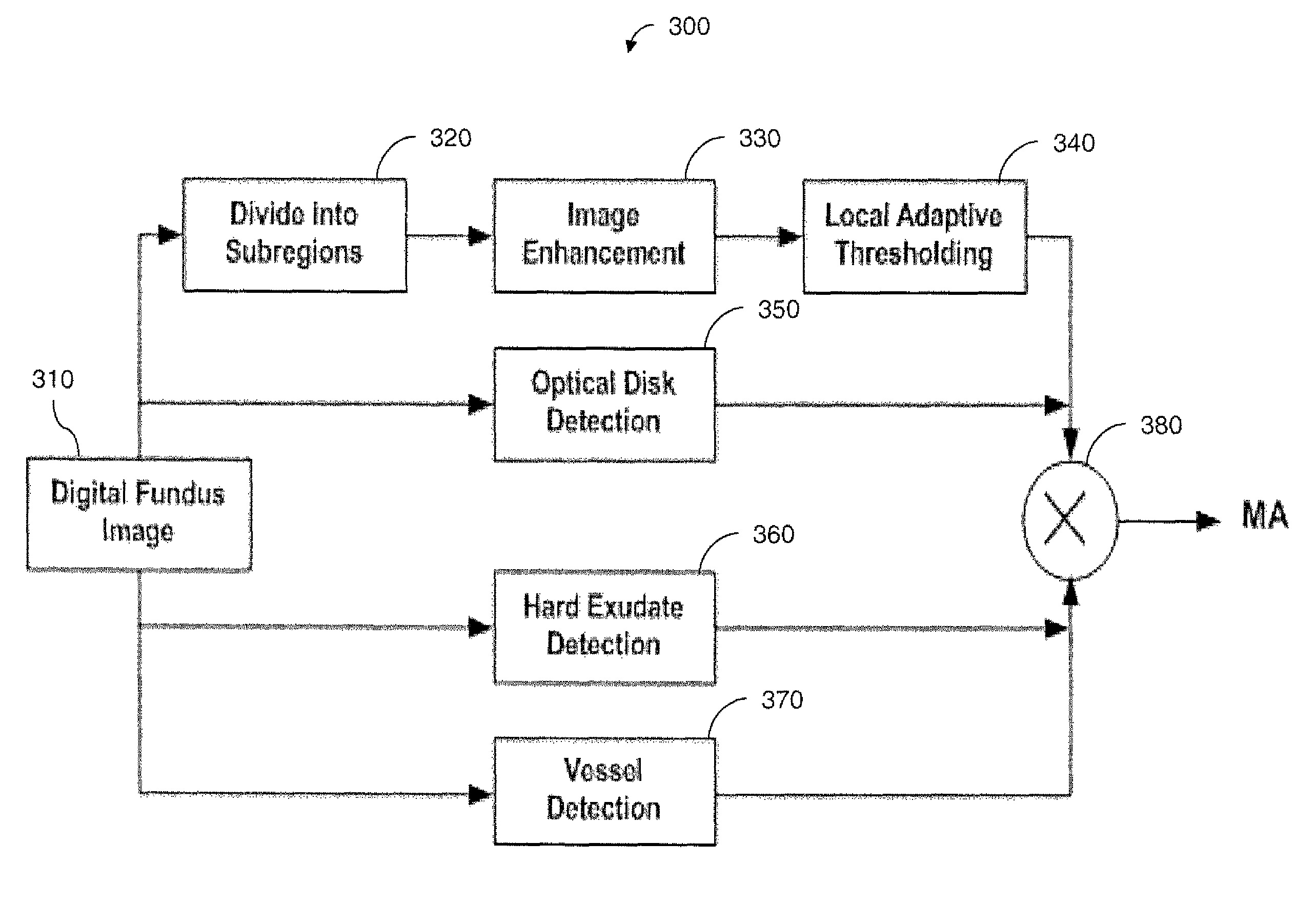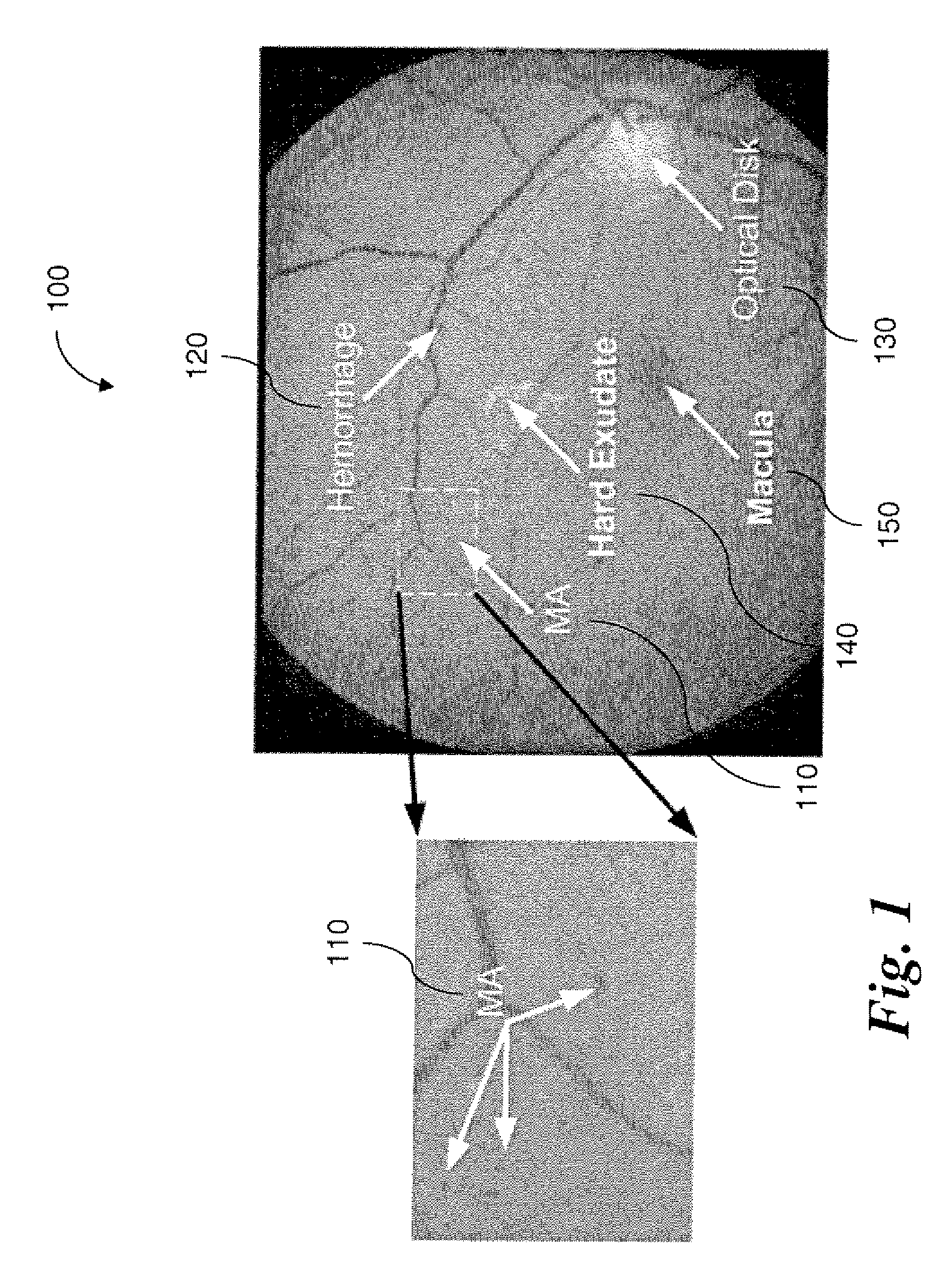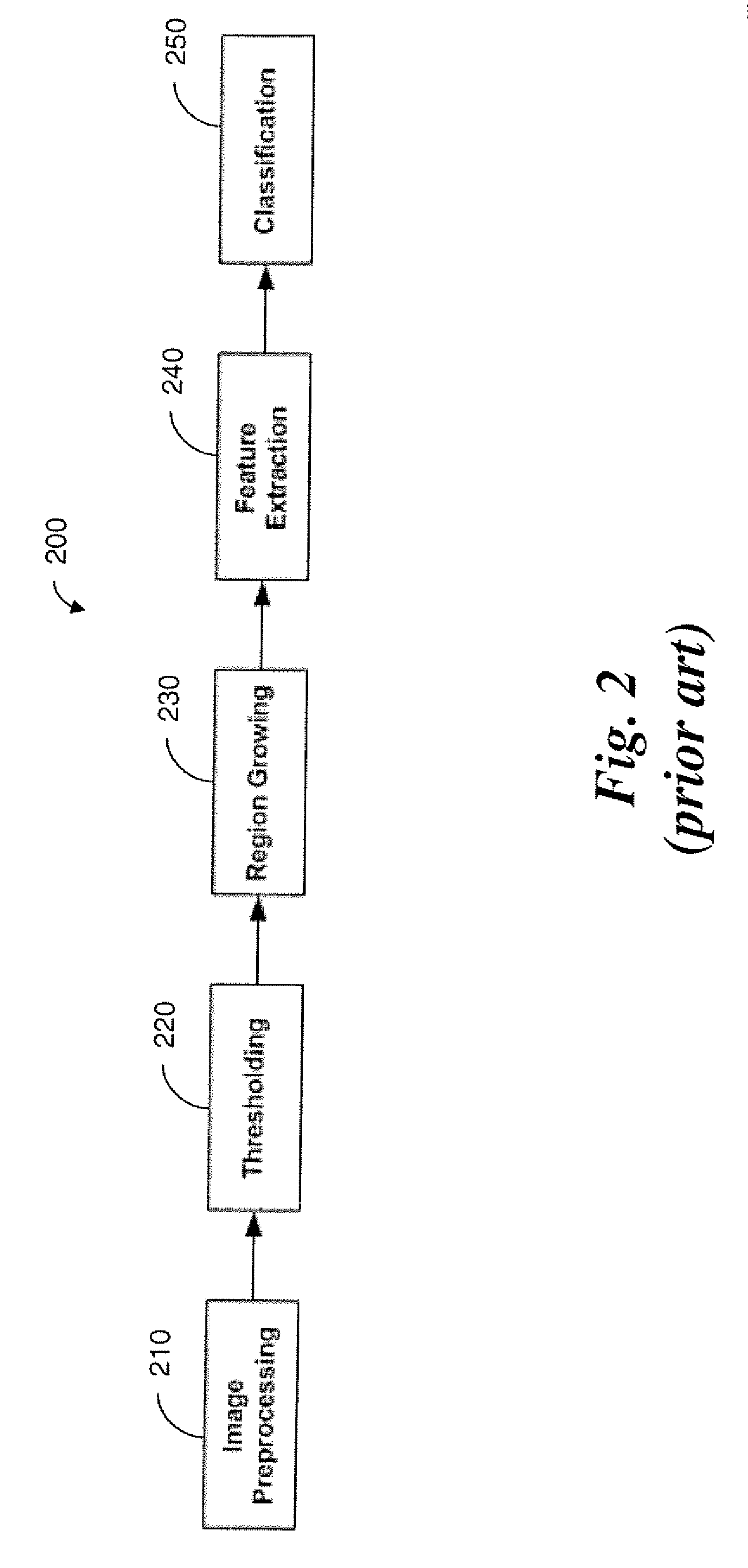Method and system for local adaptive detection of microaneurysms in digital fundus images
a technology of microaneurysms and fundus images, applied in the field of medical imaging analysis, can solve the problems of ophthalmologists screening a large number of diabetic patients annually, manual identification of mas in fundus images is time-consuming and subject to inter- and intra-operator variability, and achieves the effect of improving the specificity of ma detection, reducing the workload of ophthalmologists, and improving detection accuracy
- Summary
- Abstract
- Description
- Claims
- Application Information
AI Technical Summary
Benefits of technology
Problems solved by technology
Method used
Image
Examples
Embodiment Construction
[0034]The inventors have developed a new scheme for robust MAs detection using digital ocular fundus images. The new scheme: (1) takes into account the local properties and variations to improve sensitivity of detection; (2) incorporates a priori knowledge during detection to further reduce false detections (such as, no MAs would appear on blood vessels); and (3) is more robust to parameter selections, and thus to different imaging conditions.
[0035]A flow chart illustrating the inventive scheme 300 is shown in FIG. 3. A fundus image 310 is first automatically subdivided (step 320), and each subregion is then analyzed adaptively (steps 330, 340). Detections of optic disk (step 350), vessel regions (step 370) and hard exudates (step 360) are introduced in parallel to incorporate prior knowledge about locations where MAs would not appear. The a priori information is combined by multiplication (step 380) with the analysis results to yield accurate MAs detection.
[0036]Image Division and ...
PUM
 Login to View More
Login to View More Abstract
Description
Claims
Application Information
 Login to View More
Login to View More - R&D
- Intellectual Property
- Life Sciences
- Materials
- Tech Scout
- Unparalleled Data Quality
- Higher Quality Content
- 60% Fewer Hallucinations
Browse by: Latest US Patents, China's latest patents, Technical Efficacy Thesaurus, Application Domain, Technology Topic, Popular Technical Reports.
© 2025 PatSnap. All rights reserved.Legal|Privacy policy|Modern Slavery Act Transparency Statement|Sitemap|About US| Contact US: help@patsnap.com



